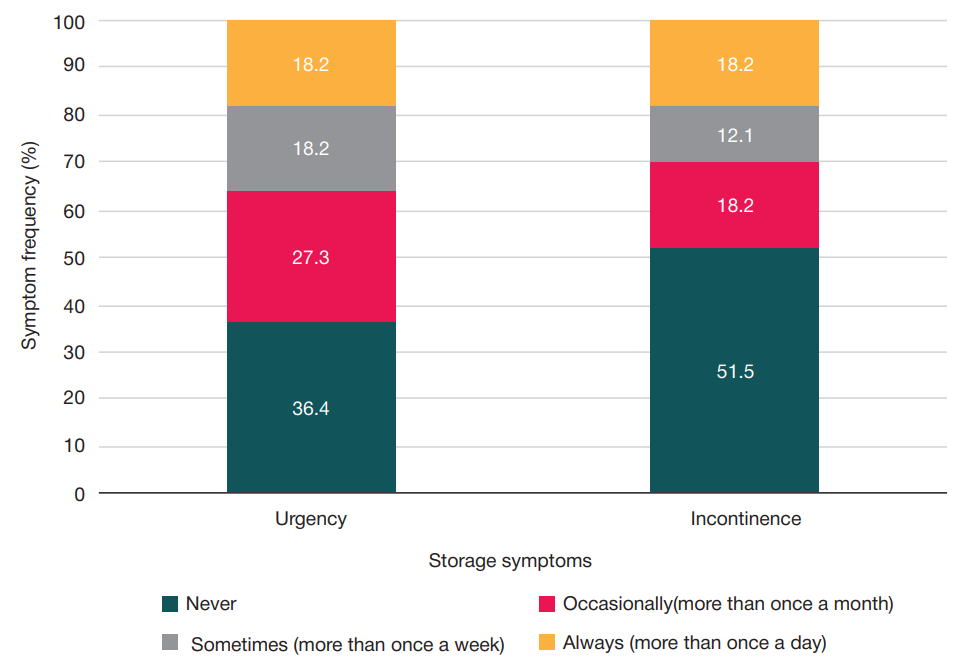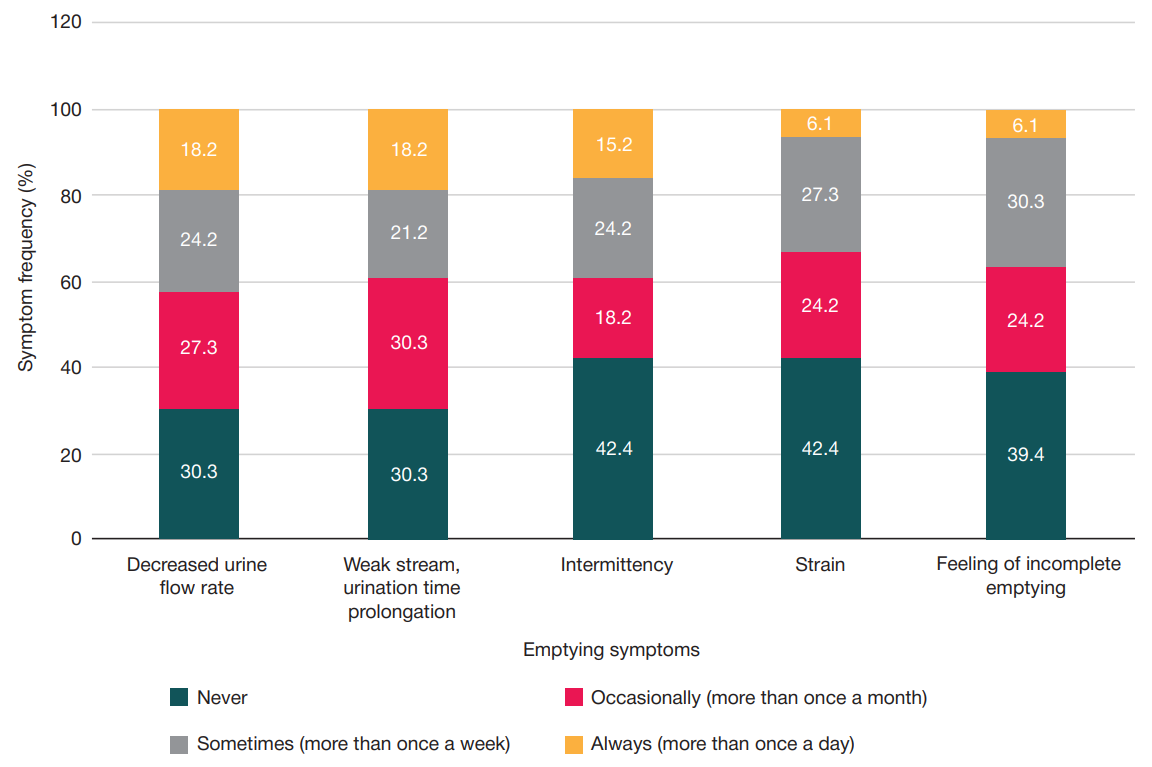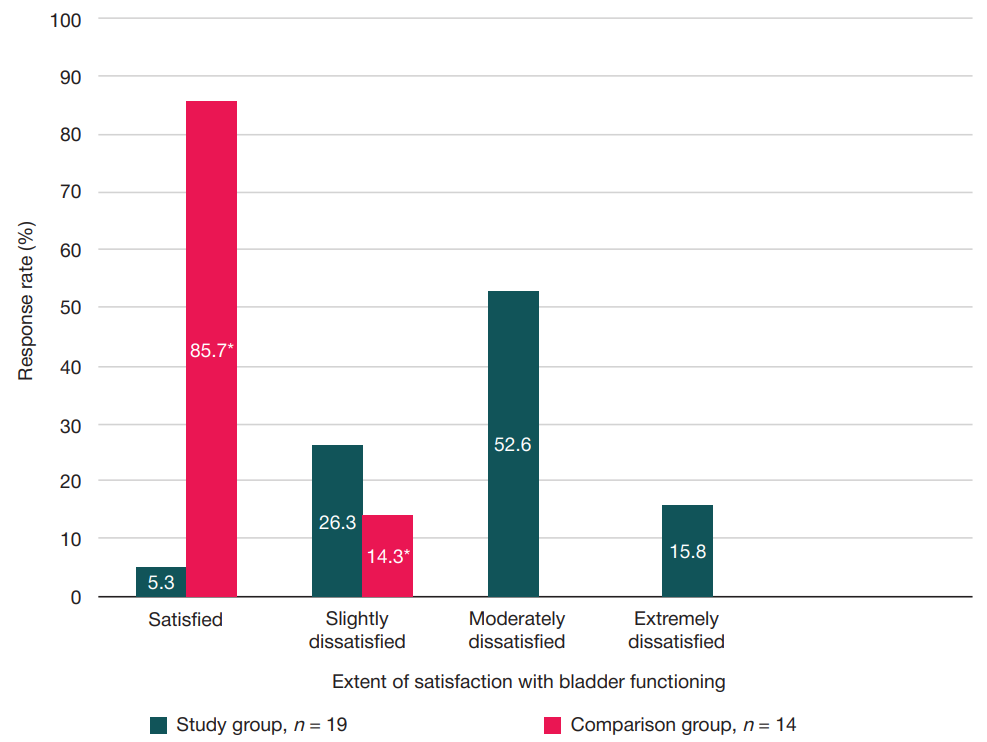
This article is an open access article distributed under the terms and conditions of the Creative Commons Attribution license (CC BY).
ORIGINAL RESEARCH
Assessment of lower urinary tract dysfunction in women with multiple sclerosis
1 South Ural State Medical University, Chelyabinsk, Russia
2 National Research Tomsk State University, Tomsk, Russia
3 Medical Rehabilitation Center, Clinical Institute of Brain LLC, Berezovsky, Russia
Correspondence should be addressed: Ekaterina I. Luzanova
Vorovsky, 64, Chelyabinsk, 454092, Russia; ur.xednay@avokihcortse
Funding: the study was conducted as part of the RSF project No. 23-25-10076.
Author contribution: Luzanova EI — clinical assessment, data analysis and interpretation, manuscript writing; Karpova MI, Abramovskikh OS — study design and supervision, approval of the final version of the manuscript; Chetvernina EA, Zotova MA — laboratory tests; Kupriyanov SV — statistical analysis; Bershadskiy AV — data interpretation.
Compliance with ethical standards: the study was approved by the Ethics Committee of the South Ural State Medical University (protocol No. 8 dated 15 September 2023). All subjects submitted the informed consent to enrollment.




